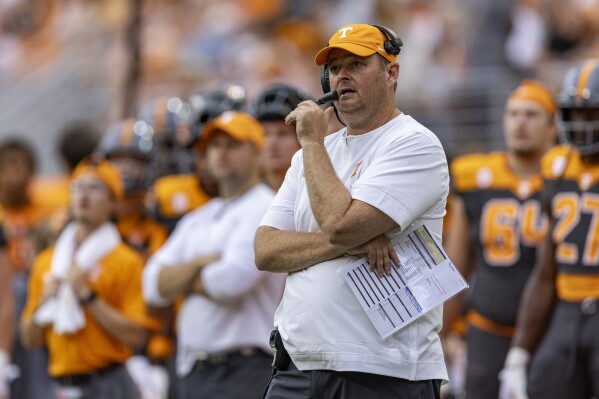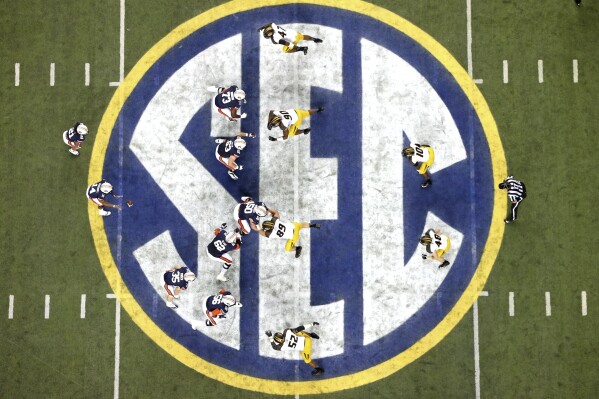Power conferences join ACC in asking a Florida court to keep the league’s TV deals with ESPN private
TALLAHASSEE, Fla. (AP) — Three power conferences have joined the Atlantic Coast Conference in urging a Tallahassee court to keep the league’s TV deals with ESPN private.
The Big Ten, the Big 12 and the Southeastern Conference filed a joint request in Leon County Circuit Court this week supporting the ACC’s claim that the documents must remain confidential to protect trade secrets. The Tampa Bay Times first reported the court filing.
The filing was a response to Florida Attorney General Ashley Moody’s complaint last month in which she accused the ACC of breaking Florida’s public records law by not providing a copy of the league’s TV contracts. Those documents are potentially relevant in ongoing lawsuits between Florida State and the ACC as the Seminoles consider leaving the league.
“Kept confidential, they plainly confer the ACC a competitive advantage and benefit,” the filing said.
The ACC said the ESPN contracts would divulge operational costs, sponsorship information and future payouts. The Big Ten, the Big 12 and the SEC agreed in an amicus brief, saying the deals would include sensitive information regarding commercial spots, benefits to corporate sponsors and necessary accommodations for producing broadcasts.



ESPN previously argued that releasing its contracts would allow competitors to “gain a leg up on ESPN in the next round of negotiations with rightsholders.”
ESPN suggested Florida would be harmed, too, because networks might balk at doing business in the Sunshine State if those contracts would become public.
The conferences say no previous TV contracts have been disclosed publicly.
Moody has argued that the TV deal is a public record because it involves the “official business” of a state entity (FSU) or someone acting on behalf of that state entity (the ACC). Florida law also says that documents are public if they’re examined by state lawyers for a public reason, and FSU’s counsel has reviewed them.
The ACC countered that FSU is not a party to the league’s contract with ESPN. The league also argued that Leon County has no jurisdiction over the conference that’s based in North Carolina and does little business in Florida.
The ESPN contracts are part of the ongoing lawsuits between FSU and the ACC as well as one involving Clemson and the ACC. As the cases proceed, courts will have to decide who controls TV rights if the Seminoles and the Tigers attempt to leave the ACC before 2036.
If the rights belong to the schools, their exit fee would be $140 million. If the rights belong to the conference, FSU estimates the total price tag would be at least $572 million and maybe as much as $700 million.
___
AP college football: https://apnews.com/hub/college-football and https://apnews.com/hub/ap-top-25-college-football-poll
Disclaimer: The copyright of this article belongs to the original author. Reposting this article is solely for the purpose of information dissemination and does not constitute any investment advice. If there is any infringement, please contact us immediately. We will make corrections or deletions as necessary. Thank you.





